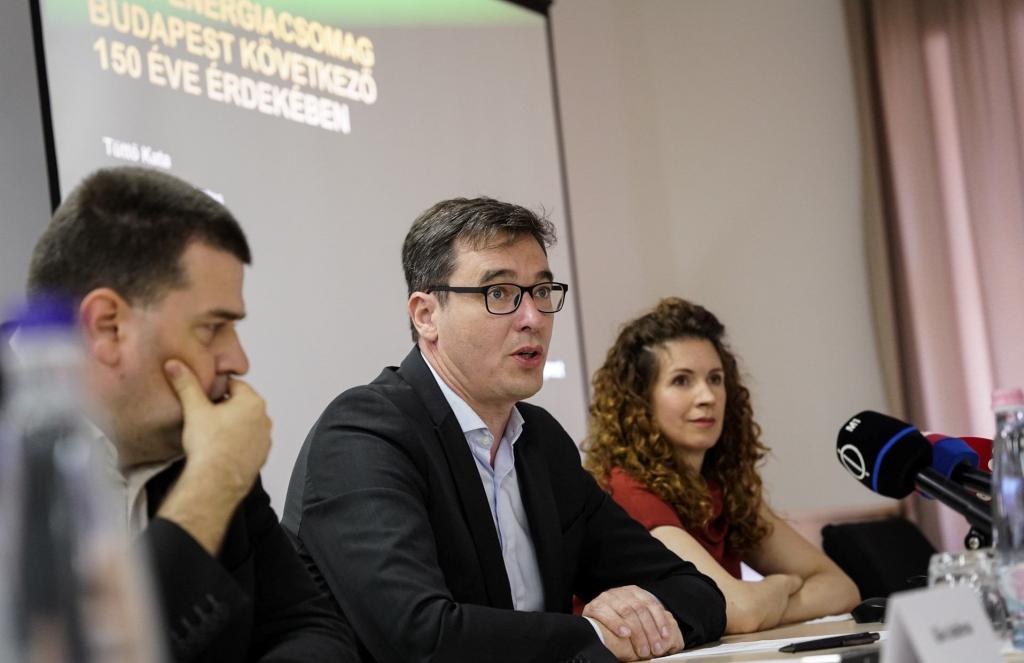Thessaloniki gets ready for its metro launch in November
The underground rapid transit lines have been under construction for almost two decades due to various project delays
 TheMayor.EU logo
TheMayor.EU logo 
Short-term measures include heating and cooling buildings less, as well as cutting decorative lights , Source: Gergely Karácsony on Facebook
As climate change and energy price hikes hit the Hungarian capital, local authorities try to establish an action plan to make Budapest energy-independent
Last week, authorities in Budapest held the first Energy Summit at City Hall to discuss measures to handle the energy crisis in both the short and long terms. Furthermore, Mayor Gergely Karácsony explained on social media that the main priority for his local administration is curbing the Hungarian capital’s dependence on Russian energy imports.
The main points of action for Budapest, according to the mayor, are increasing the share of renewable energy in the municipality’s consumption. In that regard, mayor Karácsony said that public utilities in the city will be able to run on their own energy by 2030.
According to Mayor Karácsony, climate action and sustainable investment in Budapest have been fairly neglected topics for years and instituting sweeping measures will be a difficult task. At the same time, he pointed out that the dependence on Russian energy imports for Europe, Hungary and the capital is no longer sustainable and needs to change.
Moreover, the mayor pointed out that average temperatures in the city have risen by an astounding 4°C in the last half a century.
After the summit, local authorities adopted four proposals to reduce energy consumption and boost local production of renewables, to be able to make Budapest energy independent. Here are the proposals:
Mayor Karácsony acknowledged the fact that these measures would be costly, especially in the current economic climate for both Hungary and the European Union. He also shifted the conversation towards EU funding and how vital it is to achieve the green goals of Budapest.
At the same time, however, he pointed out that Hungary is still the only European Country to not receive its European Recovery and Resilience package. Moreover, Karácsony pleaded with the national government to address the EU’s rule of law concerns in the country.

The underground rapid transit lines have been under construction for almost two decades due to various project delays

Now you can get your wine in Talence by paying directly in Bitcoin

That’s because the state has to spend money on updating the railway infrastructure rather than subsidizing the cost of the popular pass

Rethinking renewable energy sources for the urban landscape

The examples, compiled by Beyond Fossil Fuels, can inform and inspire communities and entrepreneurs that still feel trepidation at the prospect of energy transition

Now you can get your wine in Talence by paying directly in Bitcoin

The 10th European Conference on Sustainable Cities and Towns (ESCT) sets the stage for stronger cooperation between the EU, national and local level to fast track Europe's transition to climate neutrality.

At least, that’s the promise made by the mayor of Paris, Anne Hidalgo

The underground rapid transit lines have been under construction for almost two decades due to various project delays

At least, that’s the promise made by the mayor of Paris, Anne Hidalgo

Hostal de Pinós is located in the geographical centre of the autonomous region

Despite its church-y name, the district has long been known as the hangout spot for the artsy crowds

Urban dwellers across the EU are having a say in making their surroundings friendlier to people and the environment.

Forests in the EU can help green the European construction industry and bolster a continent-wide push for architectural improvements.

Apply by 10 November and do your part for the transformation of European public spaces

An interview with the Mayor of a Polish city that seeks to reinvent itself

An interview with the newly elected ICLEI President and Mayor of Malmö

A conversation with the Mayor of Lisbon about the spirit and dimensions of innovation present in the Portuguese capital














